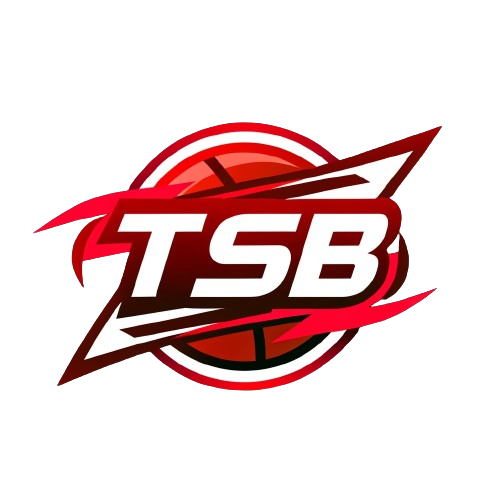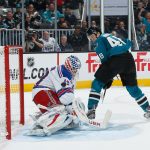Thanks to the good people at Gillette, I had a chance to interview ESPN Sport’s Science host John Brenkus. Brenkus seemed like a cool guy, and it was obvious that he loves his job.
- Advertisement -
Check out this exclusive Total Sports Blog interview with that man that loves sports, AND science.
Mike Lucas: “What’s up guys this is Mike Lucas from Total Sports Blog. On the line today we have John Brenkus, the host of ESPN’s Sport Science. We want to thank the good people at Gillette for setting this up. How are you doing today John?”
- Advertisement -
John Brenkus: “I’m doing good Mike how about yourself?”
ML: “I’m doing good. Let’s get started. So you’ve teamed up with Gillette to launch the all new Precision Play of the Week Activation on Facebook, can you tell us a little about that?”
- Advertisement -
JB: “In shaving and in sport, precision makes the difference, and I’m here to help Gillette show that difference to the world. To give fans the chance to test their own precision when it comes to football, Gillette is launching a “Precision Play of the Week” trivia game on Facebook, where I will provide a scientific breakdown of one of the prior week’s best plays. Fans will be invited to answer a question related to the play for the chance to win various prizes, with the grand prize being a trip to Super Bowl XLVIII in New York.
Performance in the NFL is not just brute force or blinding speed; it’s precision. The biggest moments in sport aren’t always what we focus on, but are instead the result of precise measures that ultimately determine the outcome of a game or even season.”
ML: “So you host Sports Science on ESPN. It’s one of their biggest segments, but how did Sports Science become a thing?”
JB: “I’ve always loved sports, but at the same time had a fasination for how things actually happened in sports. Before Sports Science, I did a show called Fight Science, where we brought some of the best MMA fighters into the world into our studio and tested and evaluated them. Those guys were unreal athletes, and one day ESPN came calling and wanted to do a segment about athletes in the NBA and the NFL and such. And that’s where Sports Science really came from.”
ML: “Oh awesome, it’s a great show. You get to work with a lot of professional athletes and such, but what would you say the coolest aspect of your job is?”
JB: “The coolest part of my job is definitely seeing these elite athletes in action, and learning from them. You don’t realize how unbelievable talented some of these guys are until you see it in person, and then you’re like ‘WOW, how did he do that?!’. I’ve seen a lot of crazy things happen during evaluations, but watching these guys in action never gets old. Every time we evaluate a guy I leave the session with something new that I learned.”
ML: “So like you said, you enjoy learning, and I think anyone that watches Sports Science learns something too. But what have you learned from analyzing all these players and plays that has sort of changed your outlook on sports?”
JB: “This sort of goes back to my last answer, but I’ve learned not to take anything these athletes do for granted. These guys make some of these plays look so easy, but the reality is that 99% of America couldn’t do what they’re doing. Some of this stuff may look easy, but trust me it’s not.”
ML: “So there are some athletes in today’s world that people talk about as potential two sport athletes. Well use LeBron James for example. He is the best basketball player on the planet right now and a ton of people seem to think he’d be a great NFL player too. You’ve analyzed LeBron before. How do you think he’d fare in the NFL?”
JB: “Honestly, LeBron would dominate the NFL. Besides quarterback and even linebacker to an extent, football is an athletic sport that doesn’t require a whole lot of skill. It’s not like basketball where you can work on dribbling and shooting and passing and such. Football is athletes going out and making plays, and LeBron is easily one of if not the best athlete in the world right now.
You look at guys that have made the transition to the NFL from basketball like Jimmy Graham and Antonio Gates, and you see that they’ve had a ton of success. Now imagine LeBron doing that, and LeBron is bigger, stronger, and faster than Graham and Gates. It almost wouldn’t be fair. Just imagine throwing a lob up to LeBron in the end zone against a smaller corner back. It’d be an automatic touchdown.
I don’t think a lot of NFL players could easily make the transition to the NBA, but I know that LeBron could easily make the transition to the NFL and be a very, very, very good player.
ML: “So you just mentioned that football is different than basketball in the sense that athleticism and talent are the keys to success, not necessarily skill. But in your opinion, which sport requires the most precision?”
JB: “Good question, but the answer is easy. It’s golf and it’s not even that close. What some of the PGA golfers do on a routine basis is unbelievable. Every shot is different. Some shots are off the fairway, some are out of bunkers, some are off tees, and every lie is a little bit different. Yet somehow, the best golfers always seem to find a way to hit it exactly where they want to, with exactly the right amount of spin, and everything looks easy.
In all the other major sports, there actually is a margin for error. In basketball, you can still make the shot if it’s not a perfect swish. In baseball, you can hit a home run if it doesn’t hit the sweet spot, but in golf, you can’t mess up. Everything needs to be perfect or the ball will not go where you want it to.”
ML: “So on Sports Science, it seems like a lot of the tests you do are more game oriented drills than the ones the NFL conducts at the NFL combine. Has Roger Goddell came calling for your secret formula yet?”
JB: “(laughs) It’s not a secret formula by any means. If it was secret we wouldn’t put it on national television. But our drills are definitely more game accurate drills than the ones at the combine. How ofter do you see an offensive lineman running a 40-yard dash during a game? I’ve never seen it before.
All of our drills are position and skill related. For receivers, we test their catch radius and jumping ability and such, which are totally different drills than we do for defensive lineman.”
ML: “So you’ve tested athletes from all different sports. Has there ever been an athlete you’ve evaluated that blew you out of the water?”
JB: “Not exactly. All these athletes are amazing and we know that going into our tests.
With that being said, we did a Best Athlete of All Time contest earlier this year and Bo Jackson came out as the winner. Maybe he would have been the one to blow me out of the water. But really, all of these athletes are incredible.”
ML: “You’ve analyzed a bunch of players, but also plays. Have you ever analyzed a play that defies sports logic, or sports science?”
JB: “All the time Mike. When we go back and look at some of these plays, we think to ourselves, ‘how did he do that?’ or ‘that shouldn’t be possible’. When we go into the play and start to break it down, we realize that the reality is that it shouldn’t have happened!
The way the play broke down defies all laws and principles, and it just happens. We can analyze how it happened, like the angle the ball left his hand or the spin of the ball, but as far as how it worked, we’re just as speechless as the rest of the viewers.”
ML: “Recently you guys did a Sports Science on the “Butt-Fumble”. How was that?
JB: “(laughs) Obviously it’s never fun to run into someone’s backside a bunch of times, and the producers definitely asked me to do it a few extra times even when I think we had enough data already, but it wasn’t the worst test they’ve ever made me do.
ML: “If that wasn’t the worst, what was?”
JB: “There are two that really stand out in my mind. When Vernon Davis was getting ready for the NFL draft, we had him in the studio to do some tests. We decided to do one test to see if it was possible to hold him off the line, and in one of our worstly planned tests of all time, I agreed to be tied up to Davis and try to hold him back off the line. Obviously it didn’t go as planned and Davis whipped me forward and I landed on my forearms, ripping all the skin off up to my elbows. That one sucked.
Another bad one was when we let Dwight Freeney sack me. He hit me out of my shoes literally. He hit me that hard. Yeah, that was a fun one.”
ML: “John, we’ll get you out of here on this question. When you guys make a Sports Science segment, what is the number one thing you want the viewers to get out of the segment?”
JB: “I want them to see how difficult some of this stuff really is. A lot of people look at sports and say that it’s just a game and it’s not that hard. But really, this is some of the hardest work on the planet. I want the viewers to understand that.”
ML: “John, thank you for your time. The Total Sports Blog crew and I really appreciate you giving us this time. Have a great day.”
JB: “Anytime Mike. Have a good one.”







